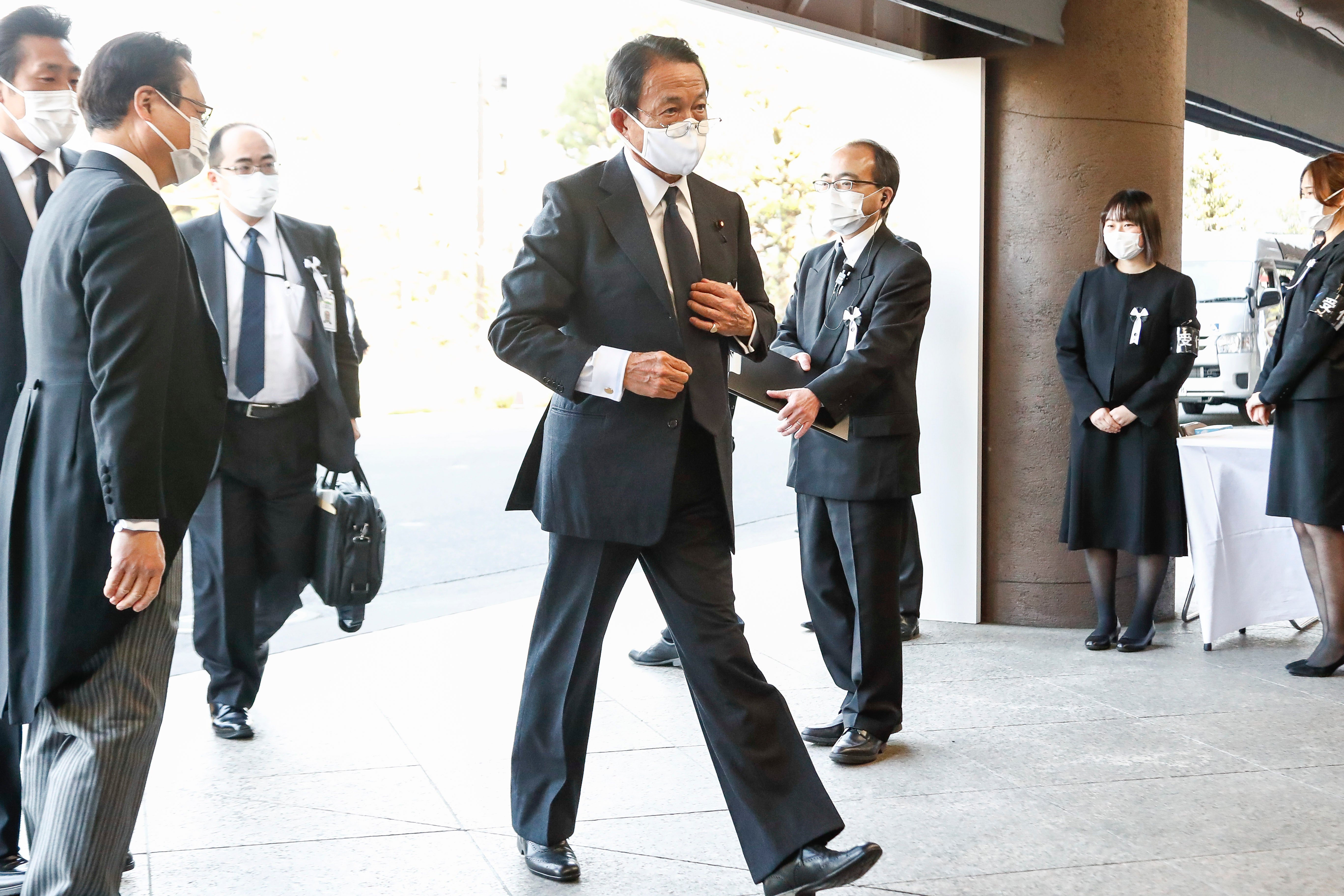China asks Japan deputy PM to drink Fukushima water he said was safe
Chinese foreign ministry spokeperson says ‘Japan should not forget the historical tragedy’

Your support helps us to tell the story
From reproductive rights to climate change to Big Tech, The Independent is on the ground when the story is developing. Whether it's investigating the financials of Elon Musk's pro-Trump PAC or producing our latest documentary, 'The A Word', which shines a light on the American women fighting for reproductive rights, we know how important it is to parse out the facts from the messaging.
At such a critical moment in US history, we need reporters on the ground. Your donation allows us to keep sending journalists to speak to both sides of the story.
The Independent is trusted by Americans across the entire political spectrum. And unlike many other quality news outlets, we choose not to lock Americans out of our reporting and analysis with paywalls. We believe quality journalism should be available to everyone, paid for by those who can afford it.
Your support makes all the difference.China has asked Japanese Deputy Prime Minister to drink radioactive water from the ruined Fukushimanuclear power plant, after he said it is safe to drink.
"A Japanese official said it is okay if we drink this water, so then please drink it," Chinese Foreign Ministry spokesman Zhao Lijian was quoted by Japanese newspaperThe Mainichi as saying on Wednesday.
He also said Japan’s ignorance of the ecological environment is "totally unjustifiable."
The statement comes after Japan’s former prime minister Taro Aso, who now serves as deputy prime minister and has a history of making controversial reamrks said on Tuesday: “I have heard that we will have no harm if we drink [the treated water].”
Earlier this week, Japanese government announced that it willrelease the treated water from Fukushimanuclear power plant, where the world’s second most severe nuclear accident took place in 2011, into the pacific ocean in two years.
The debate over how the water, which was used to cool down melted fuel in the nuclear plant should be discharged, has been ongoing for a few years.
The government says that water will be treated to reduce the radiation levels below those set for drinking water, before releasing it.
The move is causing a stir between Japan and its neighbours as they argue that the treated water would hurt the marine environment, food safety and human health.
Mr Zhao also reminded the Japanese government to not forget the country’s Minamata disease that was repprted n 1956, urging them to reconsider its decision. He said the disease didn’t take place long ago “and the pain of the local victims is yet to be healed.”
“Japan should not forget the historical tragedy,” he added.
Minamata disease is a neurological syndrome caused by severe mercury poisoning, which can lead to damage to hearing and speech, and in some cases coma, paralysed and mental illness. The disease is believed to have originated after a chemical factory, released large amounts of mercury-tainted water into the sea.
“To safeguard international public interests and Chinese people’s health and safety, China has expressed grave concern to the Japanese side through the diplomatic channel,” Mr Zhao said.
Join our commenting forum
Join thought-provoking conversations, follow other Independent readers and see their replies
Comments